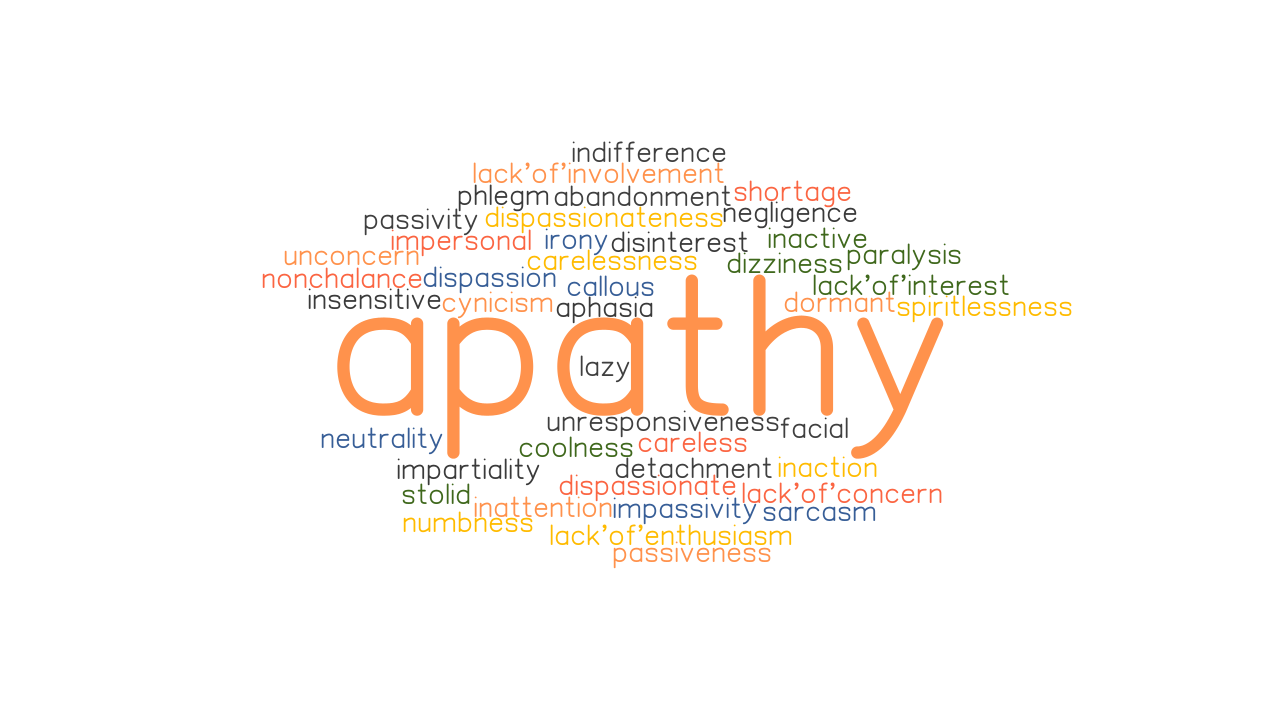How Apathy is Inhibiting Change
 |
| Image Source: GrammarTOP |
Apathy
Apathy is the greatest inefficacy in human advancement. At its worst, apathy brings psychopaths to murder, and at its best, it is a reminder of lost potential. According to Merriam Webster, apathy is a “lack of interest or concern.” Apathy includes both an antipathy towards others and slothful indifference to improving human lives. Although many people condemn the atrocities committed by apathy, they often overlook apathy’s multifaceted nature. Apathy can be classified into egoistic apathy, unambitious apathy, hedonistic apathy, and nihilistic apathy. Humanity needs to address these forms of apathy because they represent a lost opportunity for critical developments in society.
Egoistic Apathy
Egoistic apathy is the lack of interest or concern for others. At its extreme, egoistic apathy is a defining trait of antisocial personality disorder and psychopathy. In a broader context, ignoring the cries of the homeless, littering, and refusing to reach out to people in need are all examples of egoistic apathy. Egoistic apathy is an abhorrent obstruction to total utopia because it engenders a selfish culture where the everyday person couldn’t possibly be bothered to concern themselves with the unsolicited problems of other people.
This egocentric culture contradicts the ethos of total utopia. Unfortunately, society remains rife with egoistic apathy due to socio-psychological phenomena such as conformity, the bystander effect, groupthink, and diffusion of responsibility. Even so, everyone can make an impact. Parents can instill empathy in their children, people can be compassionate, and individuals can be leaders. It may seem pontifical, but all developments start with one hero.
Unambitious Apathy
Unambitious apathy is the lack of interest or concern in pursuing ambition. Unambitious apathy is polarizing because it is misconceived as hustle culture. It is morally permissible to live an innocuous, idyllic life because everyone has the right to agency. It is therefore ethical to live either a complacent life or an ambitious one. Thus, given that option, it is better to live an ambitious life than a complacent one if ambition is used to benefit others. That doesn’t mean that people need to endure arduous routines as an obligation to humanity, but the choice of altruistic ambition will always be existentially superior to complacency because it contributes more to achieving total utopia. Even the most uninspired people in society can find opportunities to push themselves to exceed their expectations and better the world.
Other Forms of Apathy
Hedonistic apathy is the lack of interest or concern in matters not concerning the pursuit of self-indulgence. This form of apathy is less common in society but fallacious nonetheless. The remiss central dogma of hedonistic apathy is “to do what makes oneself happy”. This doctrine does not directly contradict utopian altruism, but it egocentrically prioritizes self-pleasure over the well-being of other people. Happiness ought to be pursued through less selfish means, such as those supported by altruism.
Nihilistic apathy is the lack of interest or concern as a result of nihilism. Nihilistic apathy is invalid because it is founded on the subjective premise that life is meaningless when humanity can validate its existence through positive emotional experiences. This form of apathy can be attributed to despair, which can be alleviated by a plethora of means.
Apathy and the Future
Apathy, in its surreptitious array of forms, continues to vitiate advancement toward total utopia. Apathy, as a detrimental cultural affliction, demands initiative be taken. As illustrated by countless historical examples, such as the Indus Valley civilization’s rigid caste structure and ancient Confucian hierarchies, culture opposes change, especially when rooted as deeply as egoism. Furthermore, the challenge of confronting apathetic culture is confounding because of the inadequate research regarding human nature. Amidst the perplexing issues of cynicism and cultural longevity, there is no crystallized solution to the scourge of apathy, but there is always hope. Anyone can spread awareness, speak out against apathy, and innovate to progressively cure apathy.

Comments
Post a Comment